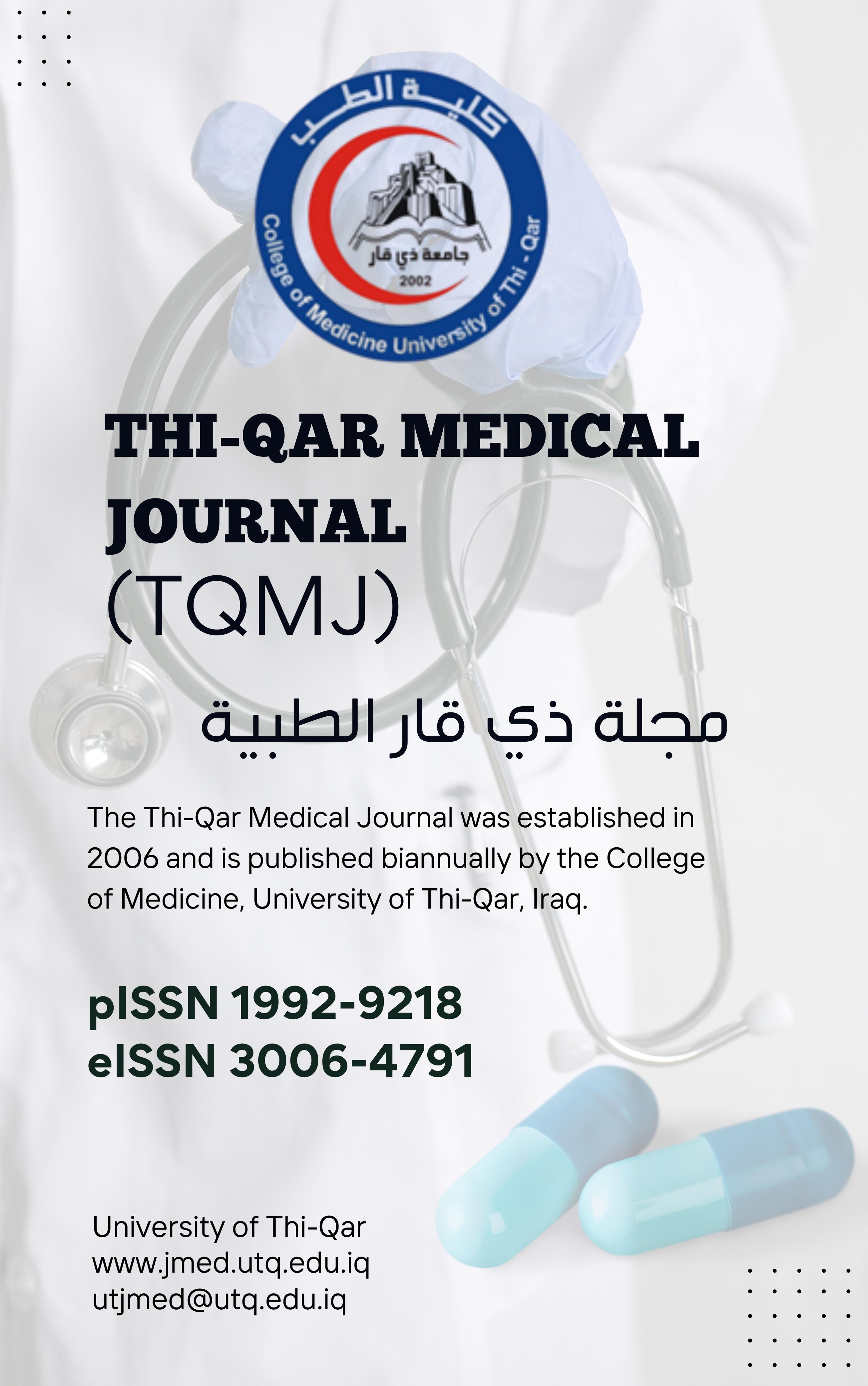Knowledge Level of Clinical Biochemistry among Iraqi Doctors
DOI:
https://doi.org/10.32792/tmj.v25i1.401Keywords:
Pre analytical Errors, Sample preparation, Clinical BiochemistryAbstract
Clinical biochemistry is a scientific discipline within the larger field of medicine, which integrates knowledge gained from fundamental and applied research for understanding the biochemical and physiological processes of humans and application of the resulting knowledge to the diagnosis, treatment, and prevention of disease. There are many laboratory tests available for clinicians to obtain useful information related to diagnosis and treatment; however, if these tests are conducted inappropriately, they are at best useless and at worst misleading and dangerous. most laboratory errors occur in the pre-analytical phase. the aim of the present study was to investigate the state of knowledge of clinical biochemistry among a group of Iraqi doctors in Basra province with particular emphasis on the rate of pre-analytical phase errors related to ordering, collection, and sample handling. Subject and Methods This study was based on the collection of participant responses from a structured questionnaire on the knowledge of clinical biochemistry that was sent out between 20 March and 9 April of 2014. A total of 243 responses were returned from six main hospitals in Basra. The questionnaire covered the main areas of pre-analytical variables for which treating physicians might be responsible, including six questions on sample collection (maximum score of 6) and four questions on patient variables (maximum score of 4). Other questions explored the need for teaching different topics related to clinical biochemistry and how confident the responder was in requesting and interpreting the laboratory tests. Results Among the 243 questionnaires returned from different hospitals, 205 were from central hospitals and 28 were from district hospitals. The respondents were distributed into 78 (32.1%) residents in the first year of their career, 83 (34.2%) SHOs, and 75 (30.9%) specialists from different types of specialities. With respect to knowledge of sample collection, 48.9% of the respondents failed to reach the minimum knowledge score of >3 with the highest failure rates observed for residents (55.8%), followed by SHOs (47.2%) and then specialists (43.1%) . Only 20.7% of those surveyed failed to succeed in answering questions related to patient preparation knowledge. When the doctors were asked about the benefits of teaching certain biochemical tests, they indicated the lowest perceived benefits for teaching the following topics: sample collection, haemolysed sample interpretation, serum calcium, magnesium and phosphate, PTH, and patient preparation Conclusion In conclusion, knowledge in clinical biochemistry is an essential aspect for the appropriate management of patients, and lack of such knowledge would play a considerable role in pre-analytical errors, which are mainly the responsibility of the treating physician. In particular, our survey shows that knowledge on sample collection and patient preparation needs to be enhanced, which could be accomplished through seminars and tutorials for the residents and SHOs in addition to incorporating these topics in the curricula of medical colleges.References
Burtis CA, Ashwood ER, Bruns DE. Tietz Textbook of Clinical Chemistry and Molecular Diagnosis. Saunders 2006.
Bousquet B, Brombacher PJ, Zérah S, Beastall GH, Blaton V, Charret J, et al. European syllabus for post- graduate training in clinical chemistry. Clin Chem Lab Med 1999; 37: 1119–1127.
Crook MA. Clinical Chemistry and Metabolic Medicine. Edward Arnold 2006.
Chhillar N, Khurana S, Agarwal R, Singh NK. Effect of pre-analytical errors on quality of laboratory. Ind J Clin Biochem 2011; 26: 46–49.
Bonini P, Plebani M, Ceriotti F. Errors in laboratory medicine. Clin Chem 2002; 48: 691–698.
Department B. Basrah Medical College. [Online]; 2014 [cited 2014 April 17]. Available from: http://basmedcol.edu.iq/?page_id=602.
Smellie WS, Murphy MJ, Galloway PJ, Hinnie J, Dryburgh FJ. Audit of emergency biochemistry service. J Clin Pathol 1995; 48: 1126–1129.
Grantham P, Weinstein S. Reducing pathology tests misuse. Aust Health Rev 1993; 16: 16–23.
Plebani M. Errors in clinical laboratories or errors in laboratory medicine. Clin Chem Lab Med 2006; 44: 750– 759.
Patra S, Mukherjee B. Pre analytical errors in clincal laboratory and how to minimize it. Int J Bioassay 2013; 2: 551–553.
Sharma S, Jackson PG, Maken J. Cardiac troponin. J Clin Pathol 2004; 57: 1025–1026.
Burtis CA, Ashwood ER, Bruns DE. Tietz textbook of clinical chemistry and molecular diagnosis: Saunders; 2006.
Bousquet B, Brombacher PJ, Zérah S, Beastall GH, Blaton V, Charret J, et al. European syllabus for post- graduate training in clinical chemistry. Clin Chem Lab Med. 1999; 37(11-12): p. 1119-27.
Crook MA. clinical chemistry and metabolic medicine : Edward Arnold; 2006.
Chhillar N, Khurana S, Agarwal R, Singh NK. Effect of Pre-Analytical Errors on Quality of Laboratory. Ind J Clin Biochem. 2011; 26(1): p. 46–49.
Bonini P, Plebani M, Ceriotti F. Errors in laboratory medicine. Clin Chem. 2002; 48: p. 691–698.
Department B. Basrah Medical College. [Online].; 2014 [cited 2014 april 17. Available from: http://basmedcol.edu.iq/?page_id=602.
Smellie WS, Murphy MJ, Galloway PJ, Hinnie J, Dryburgh FJ. Audit of emergency biochemistry service. J Clin Pathol. 1995; 48: p. 1126–9.
Grantham P, Weinstein S. Reducing pathology tests misuse. Aust Health rev. 1993; 16: p. 16–23.
Plebani M. Errors in clinical laboratories or errors in laboratory medicine. Clin Chem Lab Med. 2006; 44(6): p. 750–759.
Patra S, Mukherjee B. Pre analytical errors in clincal laboratory and how to minimize it. Int J. Bioassay. 2013; 2(1): p. 551-553.
Sharma S, Jackson PG, Maken J. Cardiac troponin. J Clin Pathol. 2004; 57(10): p. 1025–1026.




